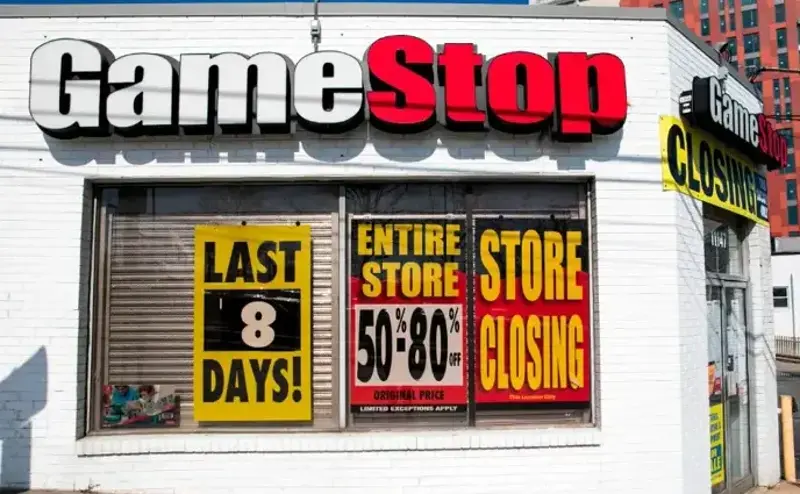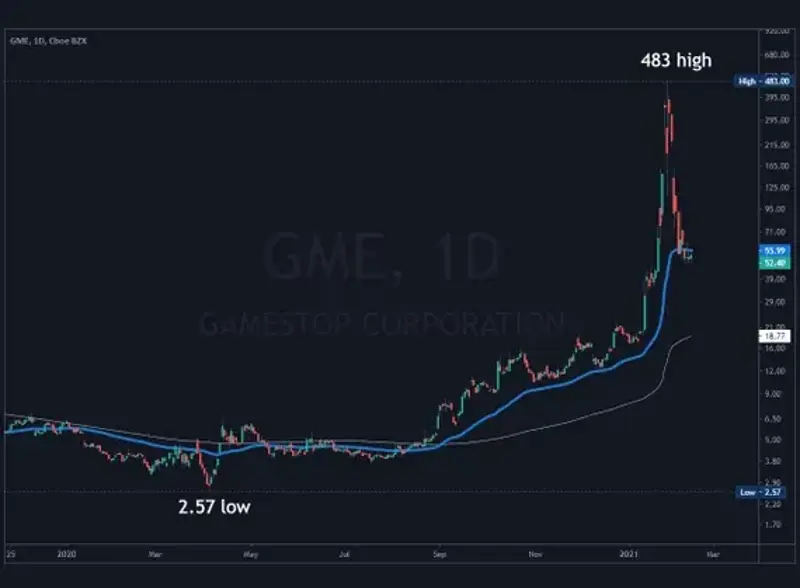What happened with GameStop - The Rise and Fall of GameStop
A Retail Titan
GameStop, founded in 1984 as an exchange and rental service for video games, rapidly expanded to become a retail behemoth. By the mid-2000s, it operated thousands of stores across the United States and beyond, generating billions in annual revenue. At its peak in 2013, GameStop boasted over $9 billion in sales, a testament to its dominance in the physical video game retail market.
The Digital Downturn
The landscape began to shift dramatically in the late 2000s. The emergence of digital game distribution platforms like Steam, coupled with the increasing popularity of online gaming, marked the beginning of a decline for traditional brick-and-mortar retailers. GameStop's sales started to erode as consumers increasingly opted for digital downloads over physical discs.

By 2016, the company's revenue had plummeted to around $7.5 billion, and its stock price had fallen significantly. Store closures became commonplace as the company struggled to adapt to the changing market. The once-mighty retailer faced growing skepticism about its long-term viability.
The GameStop Saga
In early 2021, GameStop became the unlikely epicenter of a financial phenomenon. A loose-knit group of individual investors, primarily organized on the Reddit forum WallStreetBets, began buying up GameStop shares in large quantities. This collective buying spree, fueled by social media and online communities, sent shockwaves through the financial world.

GameStop's stock price soared to dizzying heights, catching Wall Street by surprise. Hedge funds that had bet against the company's success (short selling) were forced to cover their positions, buying shares to avoid significant losses. This buying pressure exacerbated the price surge, creating a classic short squeeze.
What is a Short Squeeze?
A short squeeze occurs when a stock's price rises rapidly due to heavy buying pressure. This often happens when investors believe a stock is undervalued and start buying it in large quantities. When a significant number of investors have bet against a stock (short selling), they are forced to buy shares to cover their positions as the price rises, further driving up the price.
In the case of GameStop, the massive buying interest from retail investors created a short squeeze that sent the stock price into overdrive.
The Aftermath
While the GameStop saga was undoubtedly a rollercoaster ride, the company's long-term prospects remain uncertain. The shift towards digital gaming is an ongoing trend, and GameStop will need to continue adapting to survive. The company has taken steps to diversify its business, including expanding into pre-owned technology and collectibles.
Whether GameStop can successfully reinvent itself remains to be seen. The company faces stiff competition from digital platforms and other retailers. As the gaming industry evolves, so too must GameStop if it hopes to remain a relevant player.